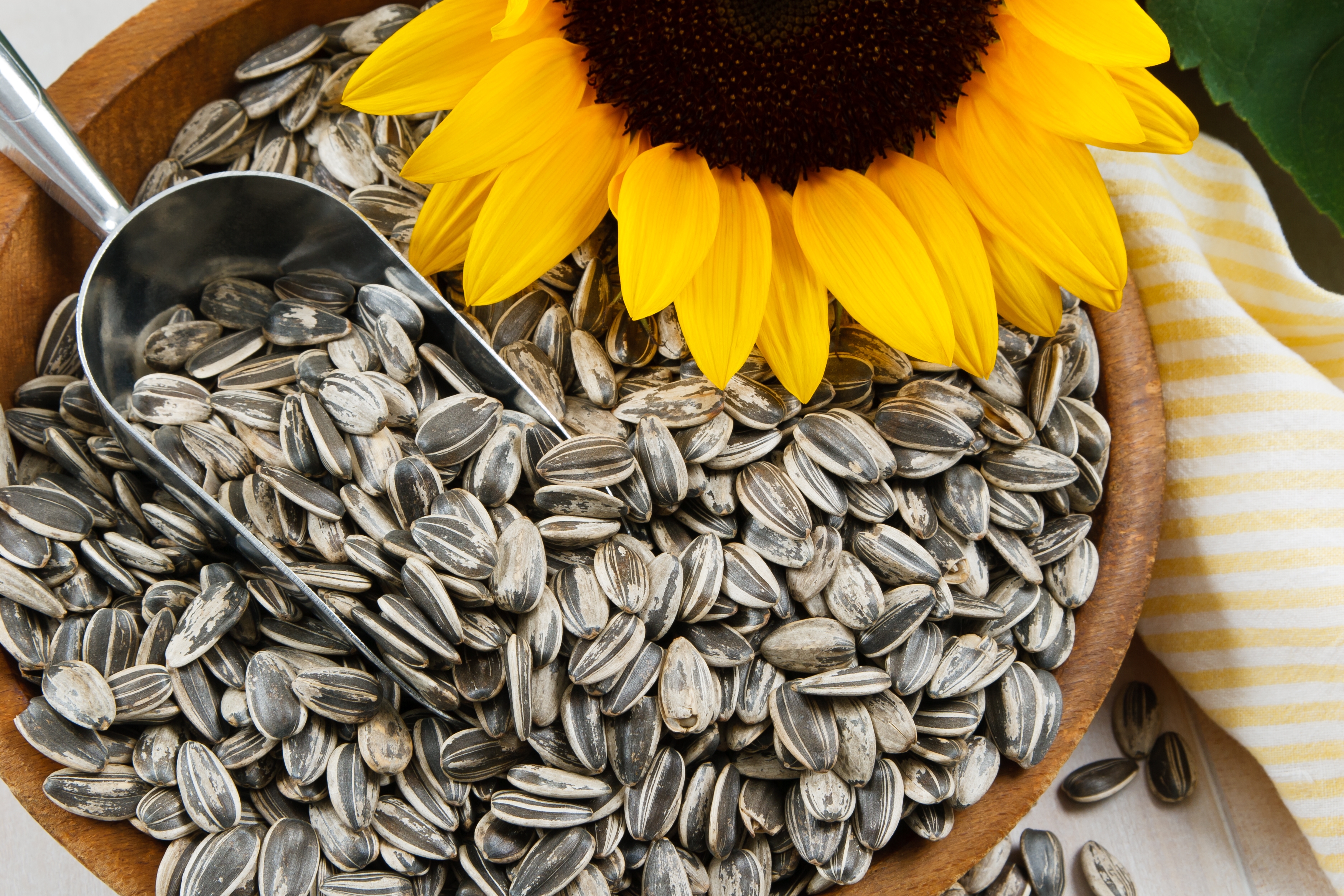Sunflower
Sunflowers are iconic plants known for their large, radiant yellow blooms. Native to North America, these flowers have played significant roles both agriculturally and culturally. While often celebrated for their beauty, sunflowers also produce seeds that have become a staple in many diets worldwide. In regions like Alberta and the broader Canadian landscape, sunflowers are cultivated not just for their aesthetic appeal, but also for their nutrient-rich seeds and oil.

More on Sunflower
About
Sunflowers are characterized by their tall stems and broad flower heads that can reach diameters of up to a foot or more. Remarkably, these flowers exhibit "heliotropism" in their early stages, meaning they turn to face the sun as it moves across the sky. The seeds, arranged in a spiral pattern in the flower's center, are the fruit of the sunflower and come encased in a hard shell, which can be black, striped, or white. These seeds are a nutritional powerhouse, rich in healthy fats, proteins, fibre, vitamins, and minerals, especially vitamin E and selenium.
Apart from the seeds, sunflowers are also a source of oil that's popular in cooking and as a base for various products.
History
Sunflowers have a rich history rooted in North America, where Indigenous peoples cultivated and revered them for thousands of years for food, oil, dye, and medicinal purposes. Introduced to Europe in the 16th century, sunflowers captured the imagination of many, including artists like Vincent van Gogh, who immortalized them in his paintings.
Over time, as their agricultural potential became evident, sunflowers were extensively cultivated, especially in Russia, which led to the development of larger-seeded varieties. By the 19th century, these modified varieties made their way back to North America, solidifying the sunflower's global agricultural significance. In Canada, sunflower cultivation is now a blend of commercial seed and oil production and decorative gardening.
Ways To Cook
Sunflower seeds are a versatile culinary ingredient. They can be enjoyed raw, roasted, or salted as a nutritious snack. Sprinkled over salads, they add a delightful crunch and a boost of flavour. They can also be incorporated into baked goods like bread, muffins, and granola bars for added texture and nutrition. Sunflower butter, a creamy spread made from ground sunflower seeds, is a popular alternative to nut butters, especially for those with nut allergies.
The whole sunflower head can also be marinated and grilled or roasted, providing a savoury and delicious meal.
Sunflower oil, extracted from the seeds, has a mild taste and a high smoke point, making it suitable for frying and sautéing. It's also commonly used in salad dressings and mayonnaise. For those looking to benefit from the sunflower's nutritional profile without consuming the seeds directly, the oil can be taken as a supplement or used as a base in skin care products for its vitamin E content.
Whether in art, gardens, or kitchens, sunflowers have an undeniable presence, offering beauty, nutrition, and a connection to nature's wonders.
Some Of Our Favourite Videos
Alberta Sunflower Producers
Range Road Garden Farms
About this producerFoods from this producer:
